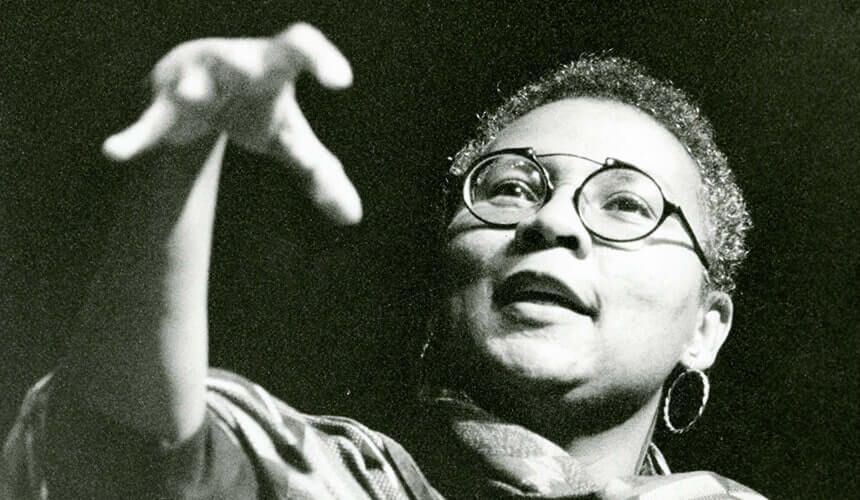bell hooks, 1952–2021
In the arena of ideas, bell hooks MA’76 trained — and fought — like a gladiator.
A tireless social critic and a passionate advocate for the freedom of expression, hooks rose before dawn to read a new book each day. And she wrote more than 30 books of her own, poetry, as well as volumes on race, class, gender, and capitalism. She passed away in December 2021 at the age of 69, leaving behind a legacy of original thought.
Born Gloria Jean Watkins in Hopkinsville, Kentucky, hooks was an undergraduate at Stanford University when she adopted her pseudonym from her maternal great-grandmother, Bell Blair Hooks. The younger hooks chose to use lower case as a show of deference: her ancestor would be the Bell Hooks with capital letters. At 19 years old, hooks wrote Ain’t I a Woman: Black Women and Feminism, which looks at the intersection of the civil rights and women’s rights movements, and she saw it published in 1981.
hooks earned her master’s degree in English literature from UW–Madison, and then earned a doctorate from the University of California–Davis. She taught at several different universities, including San Francisco State, Yale, Oberlin, and City College of New York, before establishing the bell hooks center at Berea College in Kentucky in 2014.
Her work leapt from discipline to discipline. Among hooks’ books are And There We Wept (poetry, 1978), Feminist Theory (philosophy, 1984), Teaching to Transgress (social criticism, 1994), Reel to Real (film criticism, 1996), and Happy to Be Nappy (children’s book, 1999). She was often willing to criticize popular Black Americans, such as Spike Lee and Beyoncé.
“I think of public intellectuals as very different, because I think that they’re airing their work for that public engagement,” hooks told the New York Times. “Really, in all the years of my writing that was not my intention. It was to produce theory that people could use.”
In 2017, UW–Madison honored hooks by including her in Alumni Park. Her legacy influences scholars across many different fields.






